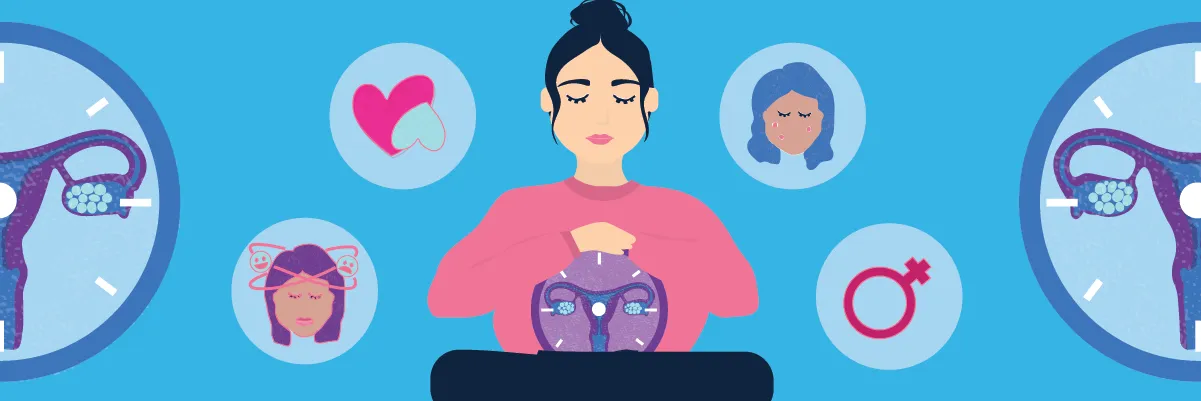Apr 25, 2025
What to Expect After Taking the Morning After Pill: Period Delays & Side Effects
So, you’ve taken the morning after pill and now you’re left wondering, “What next?” Whether it’s your first time or not, waiting for your period to show up can feel like a mini rollercoaster of anxiety, body changes, and questions. Let’s break down what’s normal, what might feel a little weird, and when it’s time to check in with a healthcare provider.
What Exactly Is the Morning After Pill?
The morning after pill is a form of emergency contraception used to help prevent pregnancy after unprotected sex or birth control failure (like a condom breaking). It’s not an abortion pill, and it doesn’t end an existing pregnancy, it works by delaying or preventing ovulation.
There are a couple of types of morning after pills out there, that are effective, especially when taken ASAP after the event.
Let’s Talk About Timing: When Will My Period Come?
This is one of the most searched questions and for good reason. After taking emergency contraception, your cycle might feel a bit out of whack. Some people get their period early, while others experience a delay.
If you’re wondering how long does the morning after pill delay your period, the answer varies. For many, periods arrive within a week of the expected date, either earlier or later. A delay of up to a week is usually not a cause for concern. However, if your period is more than 7 days late, it’s a good idea to take a pregnancy test just to be sure.
Common Side Effects
Let’s be real, emergency contraception can throw a little chaos into your body. The hormone dose is higher than in typical birth control, so it’s not unusual to experience side effects like:
- Nausea or vomiting
- Breast tenderness
- Dizziness or headaches
- Cramps or bloating
- Fatigue
- Temporary changes in menstrual flow or timing
All of these fall under common side effects and usually subside within a few days. Everyone’s body reacts differently, so while your friend might have felt nothing, you could be curled up with a heat pack and a rom-com. Both are totally valid experiences.
Is Bleeding Normal?
Yes, it can be. Some people notice bleeding after the pill use, and it often shows up as light spotting or an early period. This is usually a result of the hormone shift and isn’t necessarily a sign of anything wrong. However, if the bleeding is unusually heavy, lasts more than a few days, or is accompanied by severe pain, you’ll want to check in with a healthcare provider to rule out other issues.
What Will My Next Period Be Like?
Once your period does arrive, it might not be what you're used to. It could be lighter or heavier, shorter or longer. That’s normal. The pill works by interrupting your usual hormonal cycle, and it can take a bit for things to even out again.
If your cycles remain irregular after more than one cycle, or if you experience ongoing discomfort or symptoms, it's a good idea to speak with your GP or a sexual health nurse.
What If My Period Doesn’t Come?
If it's been more than a week since your expected period and there's still no sign of it, grab a pregnancy test for peace of mind. The morning after pill significantly reduces your chance of pregnancy, but it’s not 100% effective, especially if taken later in the 72-hour window or if you were already close to ovulating.
Also worth noting - certain factors that affect fertility, like stress, illness, or changes in weight, can also play a role in delayed or missed periods, making things more confusing.
Do I Need to Worry Long-Term?
Generally, no. Emergency contraception is safe for most people and doesn’t impact long-term fertility. That said, it’s not designed to be a regular method of birth control. If you find yourself needing it often, it may be time to chat with a provider about other options that are better suited for regular use.
What’s Normal?
Here’s a quick recap of what to expect after taking the pill:
- Period may come early, late, or right on time
- Spotting or light bleeding is common
- Mild side effects like nausea or cramping may happen
- A delayed period of up to 7 days is usually okay
- Pregnancy test recommended if your period is more than a week late
Final Thoughts
Taking the morning after pill can feel like a big deal, especially with all the waiting and wondering that follows. But knowing what’s normal and what’s not can help take the edge off. You’re not alone in this, and it’s okay to have questions. Whether it’s your cycle acting up or symptoms that just feel off, listening to your body (and talking to a professional when needed) is always a smart move.
Love, Libra x
Essity makes no warranties or representations regarding the completeness or accuracy of the information. This information should be used only as a guide and should not be relied upon as a substitute for professional, medical or other health professional advice.







